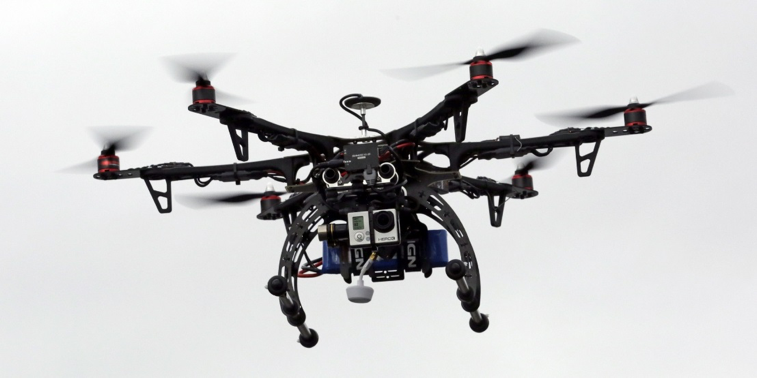By Gabrielle King
As technology continues to advance, the capabilities of drones are advancing as well. Drones are prevalent in society today and they continue to make headlines in the news. Drones are utilized by many individuals and entities, including law enforcement, private individuals, and businesses. Drones have also been the center of controversy throughout the years, especially in the context of law enforcement. The use of drones by law enforcement raises Fourth Amendment concerns, among others.
Connecticut is attempting to be the second state in the United States that would permit law enforcement to arm their drones with weapons. North Dakota is the only other state that allows law enforcement to do this, however, they are not permitted to use lethal weapons. Christopher Keating & Daniela Altimari, Law Would Let Police Equip Drones With Weapons, Harftord Courant (Apr. 1, 2017) . Connecticut, on the other hand, seeks to “allow law enforcement to use drones capable of deadly force.” Connecticut bill calls for weaponized police drones, RT Question More (Mar. 31, 2017). Evidently, this would spark national debate, considering the tension between law enforcement and the communities in the past few years.
The bill was passed by the state legislature’s judiciary committee. However, the bill has not become law yet as it still needs action by other key figures. This bill is part of a larger bill, House Bill 7260, which regulates the use of drones. While the provision appears to prevent citizens from arming their drones with weapons, it provides an exception for law enforcement officers. Law enforcement officers in Connecticut would be able to equip their drones and possibly use them in emergency circumstances.
The American Civil Liberties Union strongly opposes this bill. Due to numerous instances of police utilizing deadly force with their issued handguns, there are concerns that law enforcement will use their drones in this manner if they are capable of deadly force as well. Others do not see the need for weaponized drones on the streets of America. Individuals who oppose this bill may also worry about the potential for abuse.
Supporters of this bill, including State Senator John Kissel, argue that there are many uses for armed drones. Senator Kissel believes this is an “advance in technology” that can assist law enforcement in potentially dismantling bombs, incapacitating a subject, or shooting down other armed drones. See Christopher Keating & Daniela Altimari, Law Would Let Police Equip Drones With Weapons, Harftord Courant (Apr. 1, 2017). Police officers would need to undergo individual training in order to use an armed drone.
This bill raises legal concerns as well. When would an armed drone be justified in using deadly force? Would the standard be the same as it is for the use of deadly force with their issued weapons? While these types of drones may be used by the military during war, allowing law enforcement in Connecticut to use weaponized drones would be unprecedented. Whether police officers are permitted to lawfully use drones to administer deadly force is a question that is yet to be answered. There will inevitably be laws and regulations that restrict their use and limit deadly force to specific circumstances. The Connecticut bill is already generating this debate across the country. It will be interesting to see if the bill is successful, and if so, will other states follow Connecticut?
Student Bio: Gabrielle is a Staff Member of the Journal of High Technology Law. She is currently a 2L at Suffolk University Law School. She holds a B.A. in Politics and Law from Bryant University.
Disclaimer: The views expressed in this blog are the views of the author alone and do not represent the views of JHTL or Suffolk University Law School.

